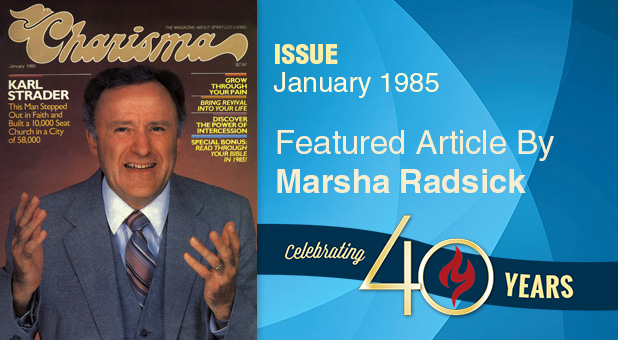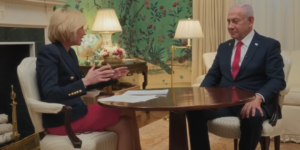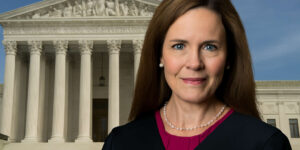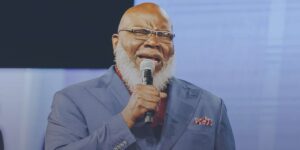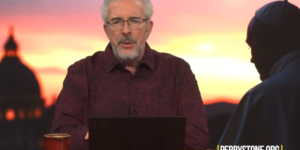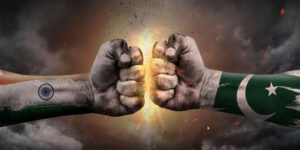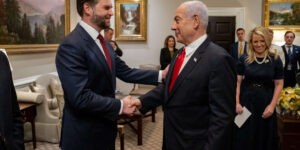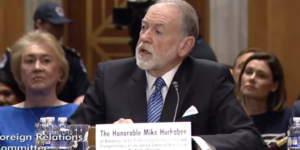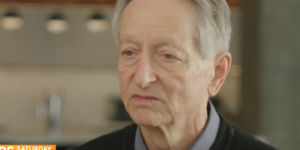When Witch Doctors Tried to Take Reinhard Bonnke Down
By the seventh night of meetings in the National Stadium, attendance had reached 40,000.
In the last five years, Bonnke’s ministry has continued to see enormous crowds, miracles and power. During a recent crusade in Livingston, Zambia, 11,600 registered decisions for Christ.
But more is coming, says Bonnke. The bulk of revival—”raising the spiritual dead en masse”—is soon to spread worldwide, he says.
It will come only through humility, fasting and prayerful intercession, he says.
The pronoun “I” rarely surfaces as he talks about his ministry—instead it’s “we.” He commends his co-workers’ teamwork and says that although God has placed him at the helm of the ministry, “much more glory flows to the Lord when a ministry is not concentrated on one man.” Thus, his 90-member staff has a high profile in crusades—in leading singing, in teaching, in praying with those who come to the altar and with counseling new converts.
Fasting and intercessory prayer are important parts of the ministry, says Bonnke. Without his practicing both, the ministry would not see the Lord obliterating the principalities and powers arrayed against them in African crusades. “This battle can only be won on our knees and fasting,” says Bonnke. “No one can rely on mental resources.”
In God nothing decreases, only increases, provided you keep on His trail. I want to see whole countries filled with the glory of God.” However, he notes what he sees as a vital need to remain humble amid what appears to be enormous success.
“The moment a person accepts the praises of men, the decline begins. Although you can’t stop people from viewing you in a heroic way, you must never accept it in your heart.”
Despite the lack of vision in local congregations before his first crusade, Bonnke says there is a vital necessity of working with existing congregations in cities where crusades are to be held.
Before each crusade, the preparation team arrives in the city and forms a committee from local church members who, in turn, furnish potential counselors. Individuals are trained and tested before official registration as counselors.
At the crusade’s conclusion, converts are assigned to the local churches.
“We have only the nets, so we must use other people’s boats,” is one of Bonnke’s frequent explanations. The boat principle has exceeded its bounds at times. One 10-day crusade in 1977 resulted in the formation of 20 new churches.
However, Bonnke repeats that he prefers to work with existing churches rather than becoming involved in church planting. He is usually received better in charismatic and Pentecostal churches, he says.
“We don’t exclude any church group,” he says. “Wherever we go, the door is open. I preach the gospel without compromise. And I don’t apologize for what God has written in His Word. I proclaim it.
“You cannot divide people by the color of their skins at the foot of the cross. Jesus came to do the opposite.” Thus, he ignores race when working with fellow Christians or inviting them to participate in the ministry. “We share the platform as a team—black, brown and white—and people sense we respect and love each other.”
Such openness is rare in the racially segregated Republic of South Africa, where Bonnke does a great deal of his ministry. There, whites govern but are in an extreme minority. Some extremists within the state church, the Dutch Reformed faith, teach that blacks are inferior and cursed by God to be whites’ servants.
Even the whites are divided in South Africa—between English-speakers descended from British settlers and Afrikaans-speakers largely descended from Dutch immigrants. The society is further separated by a large East Indian population, which is also denied full citizenship and rights by the whites. The blacks are divided by centuries-old tribal differences and cultures.
In any crusade, Bonnke may encounter the need for up to four translators turning his sermon into listeners’ native tongues.
Centuries-old voodoo and witchcraft also offer challenges unique to Africa. Bonnke scoffs at the idea that Africans are atheists by nature. Gods and idols, he contends, were a way of life long before Christianity arrived on the continent. But instead of being a stumbling block, such openness to supernatural power has been an open door for the Bonnke team.
Signs and wonders abound in Bonnke’s ministry, but he emphasizes that the gospel of salvation remains first and foremost in his messages. Miracles are just God’s way of advertising in a continent infested with the occult, witchcraft and fear of bewitchment, he says.
It is not uncommon for 40-50 demon-possessed people to surface in a single service, he says. He sees this as a demonstration of the power of the Holy Spirit. “When the Holy Spirit sweeps in, evil spirits come out,” he says. “And to the African people, it is the miracle of miracles to see such individuals freed by the Holy Spirit.”
He says he has not been called to be the teacher of all, but he does confess his desire to help any evangelists who want to learn from his successes. He says the Lord clearly laid it on his heart to start a mobile school of evangelism for on-the-spot training. In each country where the team conducts a crusade, approximately 50 young men with potential will be taught and discipled, then enlisted in the ministry during the crusade. It is hoped that such quick apprenticeships will help develop longings in the young leaders’ hearts to see the lost saved.
He admonishes American Christians to put aside self-edification and reach out to win others to Jesus. In his estimation, over-fed and under-worked Christians do not create a healthy balance.
Although he preaches with boldness, he admits a shyness when it comes to raising money.
“Nobody can say I came to him and pled for money,” he says. “I state the case and give it to God.”
Such a low-key effort was effective as he raised $5 million for his tent.
For example, when the fabric for the tent was first ordered, he needed $750,000, but had only $350,000. After signing the contract, he received a telephone call demanding another $150,000 within two weeks or the deal would be cancelled.
“I thought this was unfair and went to prayer,” he remembers. “I was praying, praying, praying. As the days ticked by, I prayed louder. Faith doesn’t panic, but your own faith walks on catastrophes. Every morning I said louder, ‘Lord, Lord, Lorrrrrrrrd.'”
Two days before the deadline, the telephone rang while the Bonnke family was seated around the breakfast table. When Bonnke answered the phone, a man said, “I can’t sleep at night.” When asked why, the man replied, “The last three to four nights, I close my eyes and see your face. I hear a voice saying, ‘Pastor Bonnke urgently needs money.'”
Bonnke replied, “God knows that is so.”
When the man began pressing him for the exact amount needed, Bonnke hesitated in specifying an amount, but at the caller’s insistence finally told him, “$150,000.” The caller promised that amount would be transferred to the ministry’s account that very day.
And it was.
As the tent neared completion, Bonnke needed 18 specially-built, 6-wheel-drive trucks to transport it—enormous trucks that would not get stuck in mud roads and which could take off cross-country when there were no roads.
The Lord provided the trucks through means that can only be called miraculous.
Such vehicles are not manufactured in Africa. Their cost was estimated at $4 million. They couldn’t be ordered without Bonnke showing that he could pay for them.
Unknown to Bonnke, Libyan revolutionary dictator Colonel Moammar Khadafy felt that he needed such a fleet—$4 million worth of top-of-the-line Magirus Dentz all-terrain semi-trucks and trailers.
Khadafy, who has supported terrorism and subversion throughout Africa, as well as in North Ireland, Central America and the Middle East, is disliked by most Western countries. Libya has in recent years been hit with trade embargoes and military equipment bans as democratic governments have attempted to contain his violent influences.
So he has had to resort to intrigue, under-the-table deals and third-party purchasing agents to get much of what he needs—such as a fleet of specially-designed trucks from West Germany.
This time, however, it was Khadafy who was subverted. His deal fell apart and the West German government learned that it was he who had ordered the fleet. The manufacturer put the trucks on the market at less than half price: $1.5 million.
Bonnke raised the money.
Suddenly he had the special transportation necessary to take his revival tent across Africa.
Then on May 6, the tent was destroyed and it appeared that the forces of evil had overcome this puny agent of the Lord of the Universe.
Bonnke suddenly had no tent.
It seemed that $5 million had been wasted on folly. Voodoo practitioners were publicly detailing how they had called upon evil spirits to ravage the tent and disrupt the Christian crusades.
Then the word of the Lord spoke comforting words through a crusade organizing committee member:
“My glory shall be a canopy that covers the people and the praises of my people shall be the pillars.”
My glory.
My glory shall be a canopy.
No tent would be necessary.



